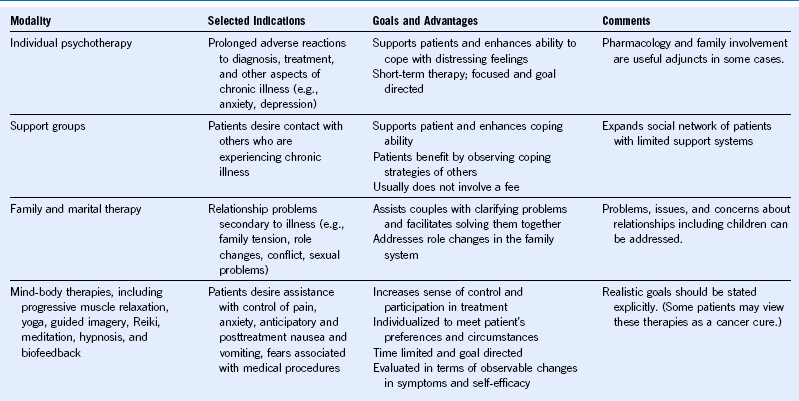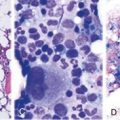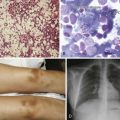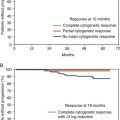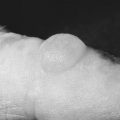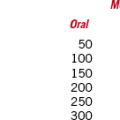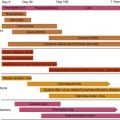Chapter 42 Psychosocial Aspects of Hematologic Disorders
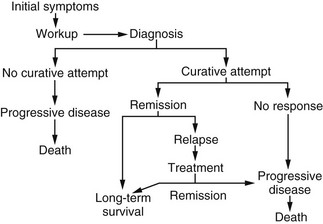
Figure 42-1 CLINICAL COURSE OF A PATIENT WITH A HEMATOLOGIC MALIGNANCY.
(Modified from Lesko LM: Hematopoietic dyscrasias. In Holland JC, editor: Psychooncology, New York, 1998, Oxford University Press, p 408.)
Factors That May Predict Poor Coping in Patients With Cancer
Demographic factors such as younger age and female sex
Limited social support or difficult social relationships
Recent history of smoking cessation
Avoidance coping (escape-avoidance, distancing, and denial)
Table 42-1 Long-Term Consequences of Therapies for Hematologic Cancers
Table 42-2 Common Symptoms of Psychiatric Disorders
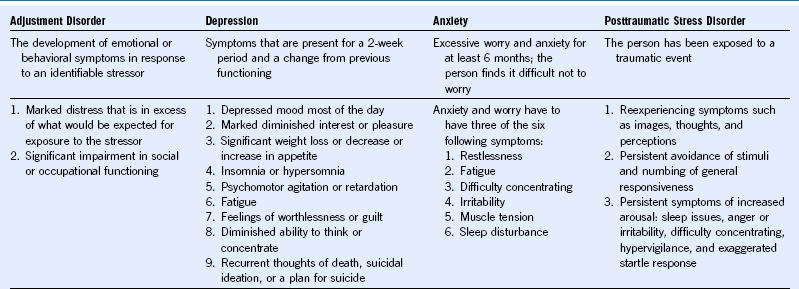
Data from American Psychiatric Association: Diagnostic and statistical manual of mental disorders, ed 4, Arlington, Va, 2000, American Psychiatric Association.
Screening for Psychologic Distress
A number of tools have been developed to screen for psychologic distress, but they have not been consistently incorporated into clinical care.118,119 One tool that is easy to administer and that patients report as capturing their problems is the distress thermometer.1 The tool is similar to pain measurement scales that ask patients to rate their pain on a scale from 0 to 10 and consists of two parts. The first part is a picture of a thermometer, and patients are asked to mark their level of distress. A rating of 4 or above indicates that a patient has symptoms indicating a need for evaluation by a mental health professional and potentially has a need for referral for services. On the second part, the patient marks items that relate to his or her distress from a six-item problem list (illness-related, family, psychologic, practical, financial, spiritual effects, or other) (Fig. 42-2).1,2 Lee et al3 found that the distress thermometer was a useful tool for screening transplant patients before admission. Pretransplant distress appeared to be highly predictive of distress following transplant and was a feasible marker to use to screen patients for distress.
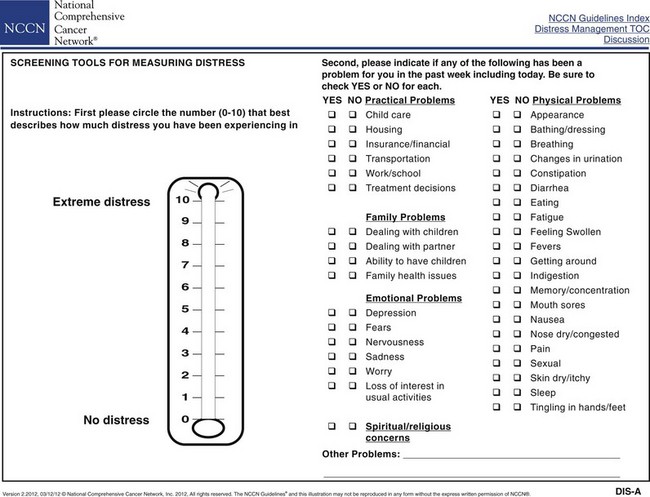
Figure 42-2 NATIONAL COMPREHENSIVE CANCER NETWORK (NCCN) DISTRESS MANAGEMENT GUIDELINE DIS-A-DISTRESS THERMOMETER.
(From National Comprehensive Cancer Network: The National Comprehensive Cancer Network 1.2005 Distress Management, the complete library of NCCN clinical practice guidelines in oncology (CD-ROM), Jenkintown, Pennsylvania, 2005, National Comprehensive Cancer Network.)
1 National Comprehensive Cancer Network. The National Comprehensive Cancer Network 1.2005 Distress Management, the Complete Library of NCCN Clinical Practice Guidelines in Oncology (CD-ROM). Jenkintown, Pa: National Comprehensive Cancer Network; 2005.
2 Trask PC, Paterson A, Riba M, et al. Assessment of psychological distress in prospective bone marrow transplant patients. Bone Marrow Transplant. 2002;29:917.
3 Lee SJ, Loberiza FR, Antin JH, et al. Routine screening for psychosocial distress following hematopoietic stem cell transplantation. Bone Marrow Transplant. 2004;35:77.

